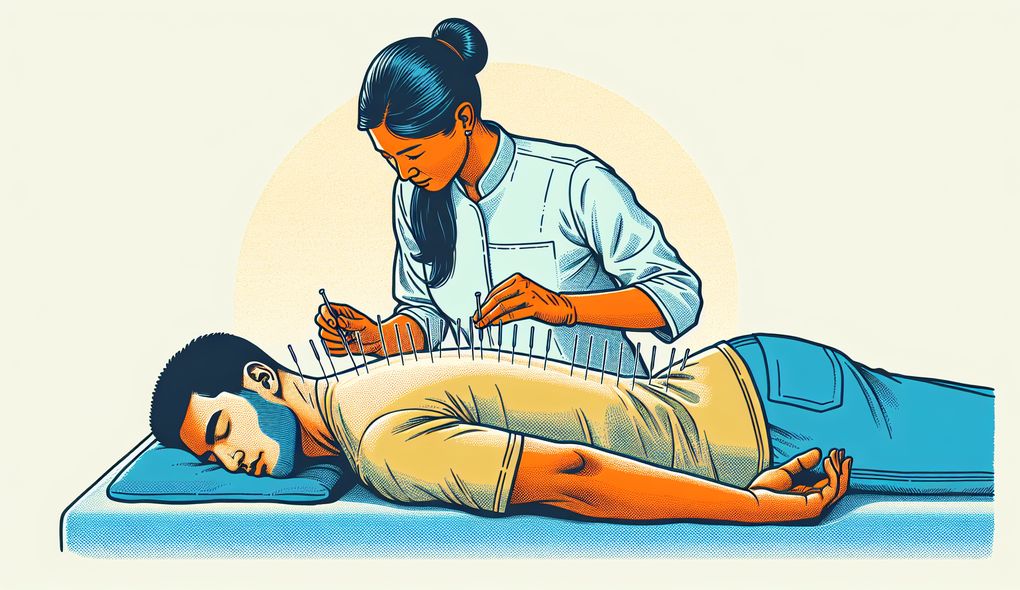Can you provide an example of a time when you had to handle a difficult or irate patient? How did you handle it?
INTERMEDIATE LEVEL

Sample answer to the question:
One time, I had a patient who was extremely nervous about receiving acupuncture treatment. They had never tried acupuncture before and were worried about the needles. I listened attentively to their concerns and empathized with their fears. I took the time to explain the process of acupuncture, reassuring them that the needles are very thin and inserted gently into specific points on the body. I also shared success stories from other patients who had similar worries but had positive experiences. To further ease their worries, I provided a calm and comfortable environment, with soft music playing in the background. Throughout the treatment, I continuously checked in with the patient, making sure they felt at ease and comfortable. By the end of the session, the patient was not only relaxed but also expressed their gratitude for my patience and understanding.
Here is a more solid answer:
I recall a time when I had a patient who was not only difficult but also extremely irate. They were dissatisfied with a previous acupuncture treatment they had received from another practitioner and were skeptical about seeking further acupuncture care. Understanding the importance of building trust and rapport, I patiently listened to their grievances without interrupting and validated their feelings. I acknowledged their negative experience and assured them that my approach to acupuncture was tailored to their specific needs. I took the time to explain my treatment plan, addressing their concerns and emphasizing the unique benefits acupuncture could offer. Additionally, I offered to collaborate with them on setting goals and creating realistic expectations for their treatment progress. By the end of the conversation, the irate patient had significantly calmed down, and we were able to establish a positive working relationship built on trust and understanding.
Why is this a more solid answer?
The solid answer expands upon the basic answer by providing more specific details and examples of how the candidate handled a difficult or irate patient. It shows the candidate's ability to actively listen, empathize, and address the patient's concerns to build rapport and trust. However, it could still benefit from further elaboration on the candidate's flexibility and adaptability to individual patient needs.
An example of a exceptional answer:
I had a particularly challenging experience with a patient who came in with a high level of anxiety and anger due to chronic pain. It was clear that they had lost faith in finding relief through any form of treatment. To handle the situation effectively, I first acknowledged their emotions and validated their frustration. I then took a step back from the immediate acupuncture treatment and engaged in a holistic conversation to understand the underlying causes of their pain. By actively listening and asking relevant questions, I uncovered their fear of needles and previous negative medical experiences. With their consent, I modified the treatment plan to incorporate a combination of acupressure and electroacupuncture to minimize needle insertion. I also offered to demonstrate the procedure on a less sensitive area to alleviate their anxiety. Throughout the treatment, I provided continuous support and encouragement, creating a safe environment where they could express any discomfort or concerns. By the end of multiple sessions, the patient not only experienced significant pain reduction but also developed trust and confidence in acupuncture as a viable treatment option. They even recommended my services to their friends and family, emphasizing the positive experience they had despite their initial pessimism.
Why is this an exceptional answer?
The exceptional answer goes beyond the solid answer by providing even more specific details and examples of how the candidate handled a difficult or irate patient. It demonstrates the candidate's exceptional ability to truly understand the patient's emotions and concerns, adapt the treatment plan to accommodate their needs, and provide unwavering support throughout the process. The exceptional answer showcases the candidate's strong communication, interpersonal skills, ability to make patients feel at ease and build rapport, as well as their flexibility and adaptability to individual patient needs.
How to prepare for this question:
- Familiarize yourself with various scenarios that may lead to difficult or irate patients, such as dissatisfaction with previous treatments or fear of needles.
- Develop effective listening skills to ensure you fully understand the patient's concerns and emotions.
- Practice empathy and validation techniques to acknowledge and address the patient's frustrations and fears.
- Be prepared to modify treatment plans and incorporate alternative techniques or approaches to accommodate individual patient needs.
- Learn about successful case studies or personal experiences of patients who initially had reservations but eventually had positive outcomes with acupuncture treatments.
- Stay up-to-date with the latest research and developments in acupuncture and traditional Chinese medicine to provide accurate and informed explanations to patients.
- Consider implementing relaxation techniques or creating a soothing environment to help patients feel more at ease during treatments.
What are interviewers evaluating with this question?
- Communication and interpersonal skills
- Ability to make patients feel at ease and build rapport
- Flexibility and adaptability to individual patient needs

